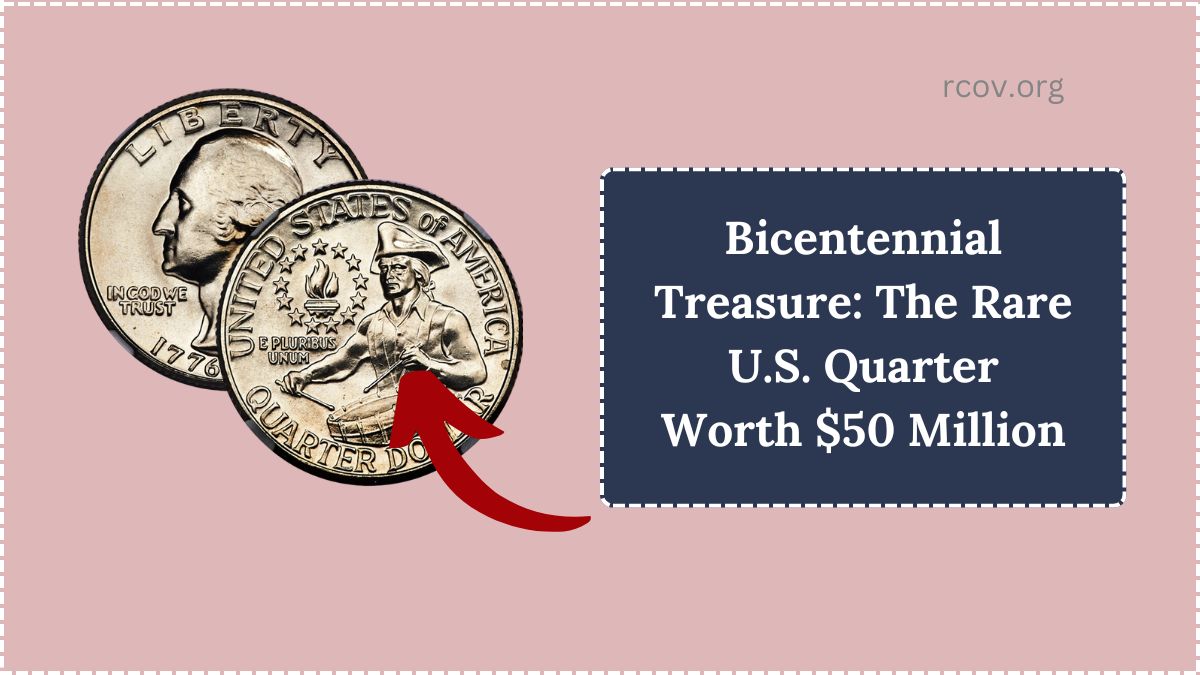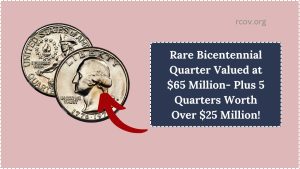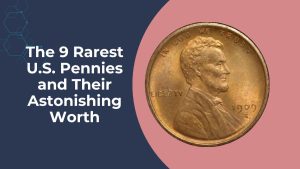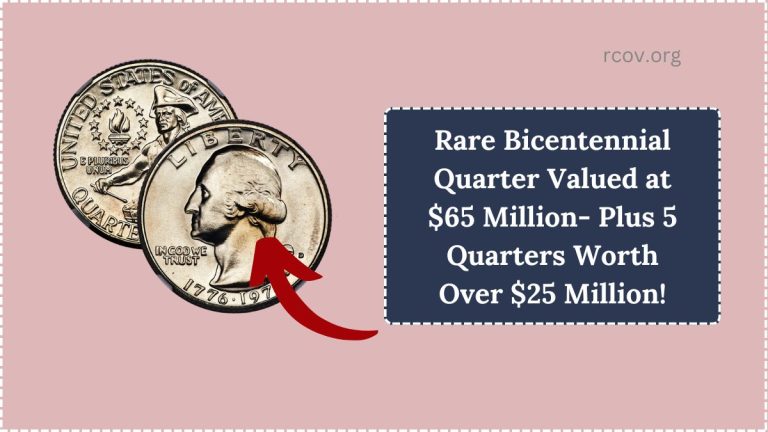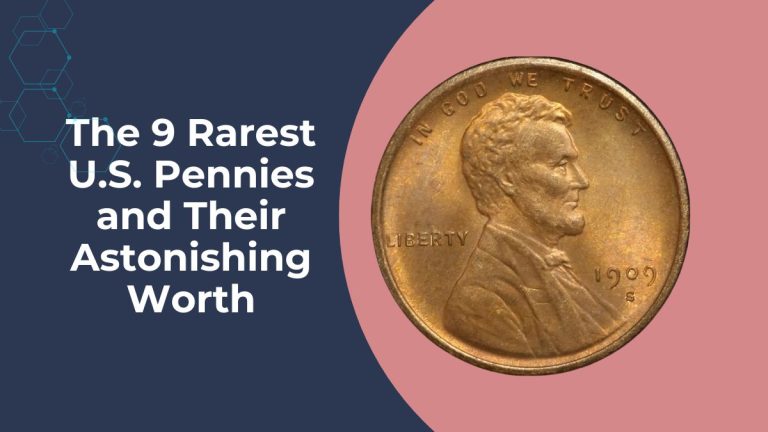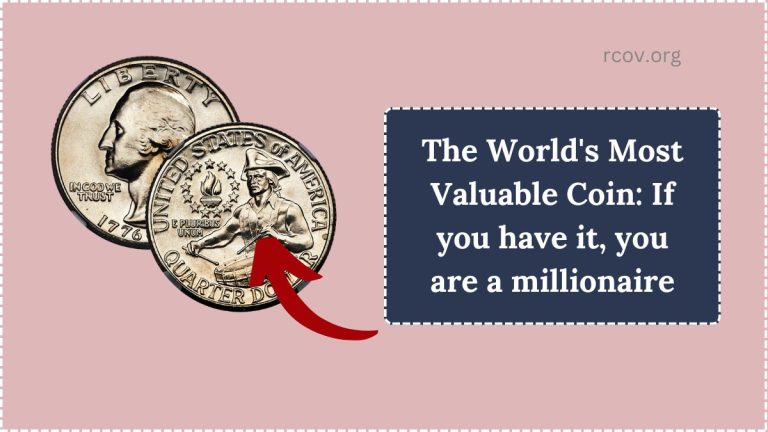The U.S. Bicentennial Quarter is more than just a piece of spare change; it’s a historical artifact that commemorates the 200th anniversary of American independence.
While millions of these quarters were minted, a select few have gained incredible value due to unique errors, rare materials, or limited production.
One such Bicentennial Quarter is valued at an astonishing $50 million. This article explores this iconic coin and its significance in the world of numismatics.
1976 Bicentennial Quarter
The 1976 Bicentennial Quarter was specially minted to honor the nation’s 200th birthday. Its distinct reverse design features a Colonial drummer and a torch encircled by 13 stars, symbolizing the original colonies.
While most Bicentennial Quarters are not worth more than their face value, certain rare editions, including error coins or those struck in silver, hold immense value for collectors.
1976 Silver Bicentennial Quarter
A smaller number of Bicentennial Quarters were minted in 40% silver for collectors, making them stand out from the standard copper-nickel clad coins. These silver coins were part of special collector sets, adding to their appeal and rarity. The pristine condition of some of these coins has led to record-breaking auction prices.
1976 Error Bicentennial Quarter
Errors during the minting process have contributed to the value of some Bicentennial Quarters. Double-die errors, off-center strikes, and coins with missing elements are among the most sought-after by collectors. These unique flaws make each error coin one of a kind, driving up their demand and value.
Proof Bicentennial Quarter
Proof versions of the Bicentennial Quarter were minted with exceptional detail and a mirror-like finish. These coins were produced for collectors rather than for circulation. Their exquisite craftsmanship and low mintage make them a prized possession among numismatists.
1976 Denver Mint Bicentennial Quarter
Bicentennial Quarters minted at the Denver facility bear a distinctive “D” mint mark. While many of these coins were produced, high-grade examples with flawless surfaces are rare. Collectors often seek these coins for their historical significance and condition.
1976 Philadelphia Mint Bicentennial Quarter
Bicentennial Quarters minted at the Philadelphia facility lack a mint mark. As with Denver-minted coins, their value increases significantly when they are in mint condition. Some of these coins feature unique characteristics that add to their rarity and value.
| Coin Name | Year | Mint Mark | Estimated Value ($) |
|---|---|---|---|
| 1976 Bicentennial Quarter | 1976 | None | 50,000,000 |
| 1976 Silver Bicentennial | 1976 | S | 10,000 |
| 1976 Error Quarter | 1976 | Various | 5,000 – 20,000 |
| 1976 Proof Quarter | 1976 | S | 1,000 – 3,000 |
| Denver Mint Bicentennial | 1976 | D | 100 – 500 |
| Philadelphia Mint Quarter | 1976 | None | 100 – 300 |
| 1976 Rare Die Error | 1976 | Various | 25,000 – 50,000 |
The allure of the Bicentennial Quarter lies in its historical and collectible significance. Coins like these remind us of America’s rich heritage and the meticulous artistry involved in minting currency. Whether you are a seasoned numismatist or a beginner collector, the Bicentennial Quarter offers a fascinating glimpse into U.S. history.
What makes the Bicentennial Quarter worth $50 million?
The $50 million valuation is attributed to a unique error or variant of the Bicentennial Quarter that is extremely rare and has historical significance.
How can I identify a valuable Bicentennial Quarter?
Look for key indicators like mint marks, error details, or the presence of silver. High-grade coins in pristine condition are typically more valuable.
Where can I find a Bicentennial Quarter?
You may come across Bicentennial Quarters in circulation, but for rare and valuable variants, check auctions, coin dealers, or collector markets.

